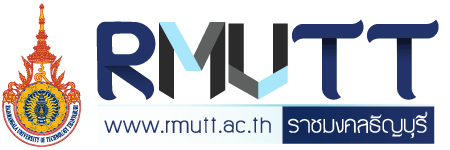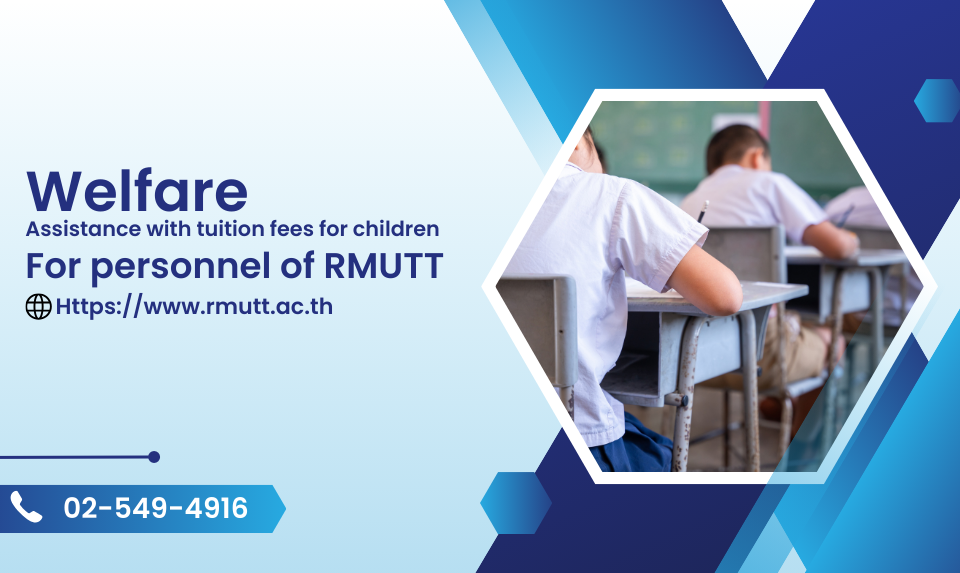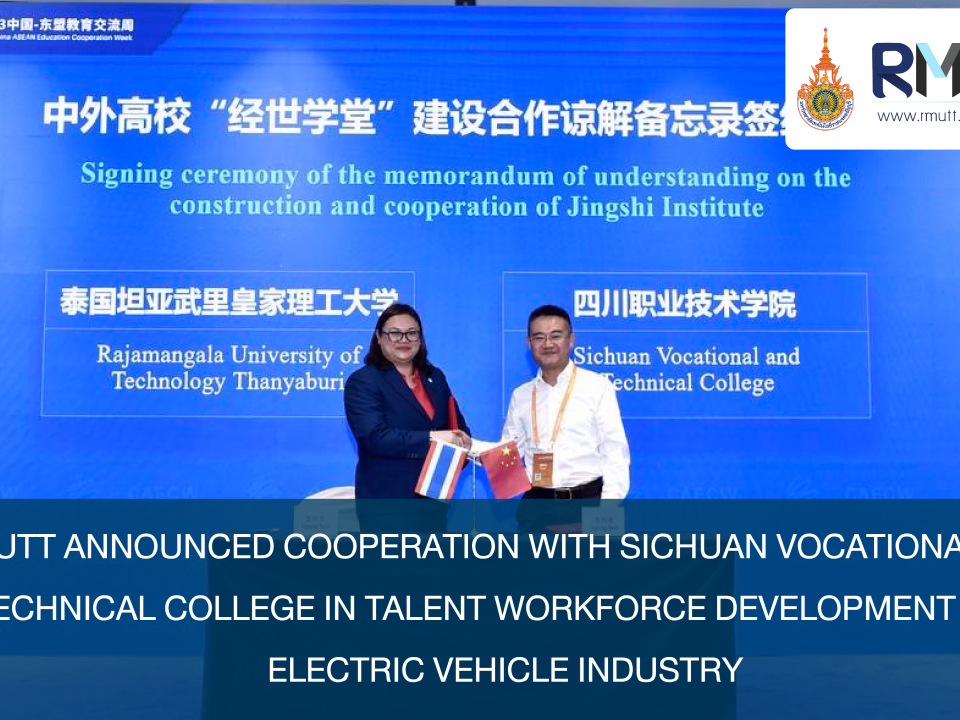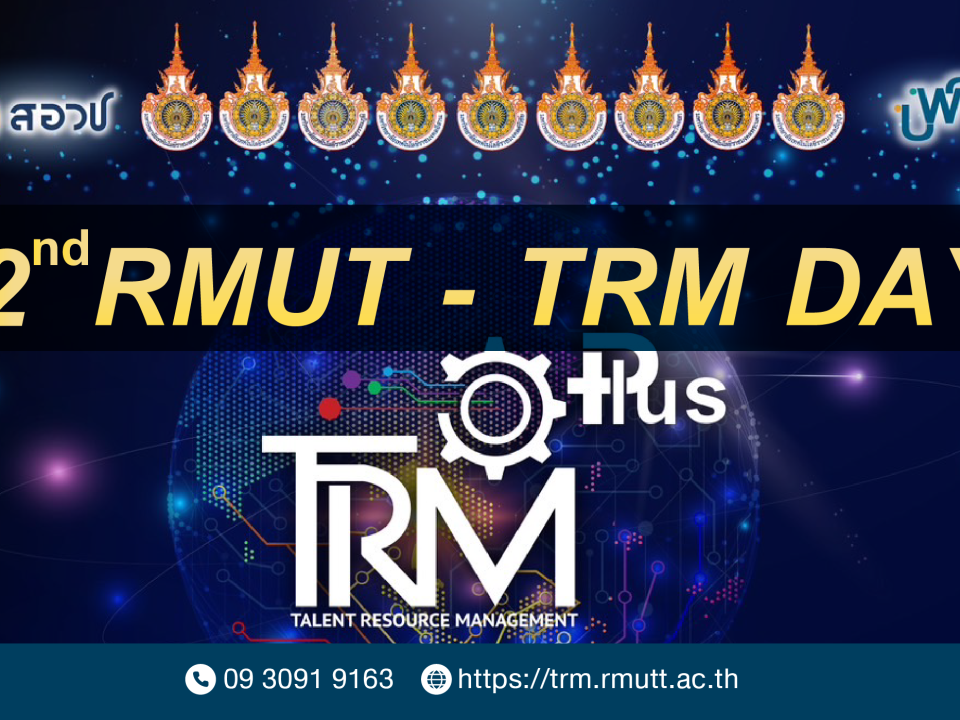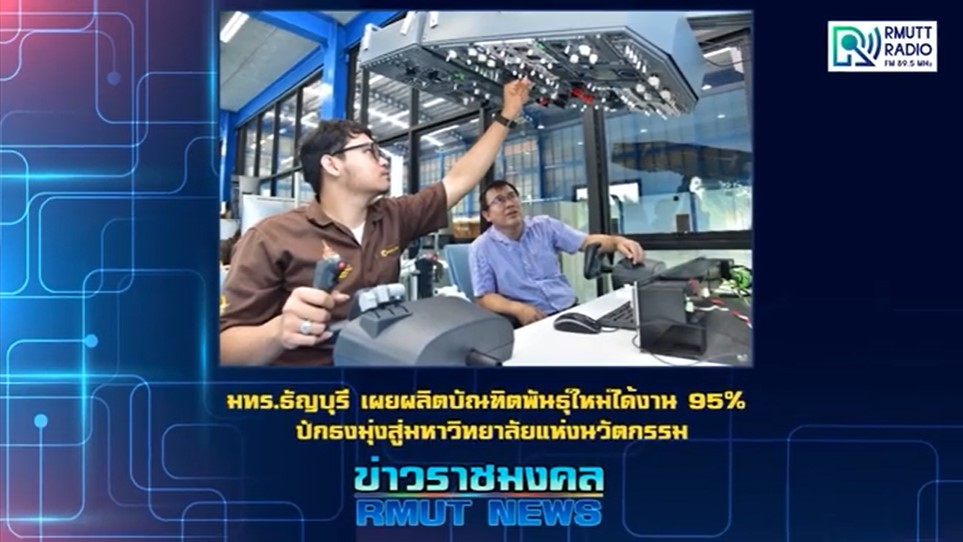
RMUTT innovative university” is moving forward, producing 95% ‘job ready graduates’
21/02/2021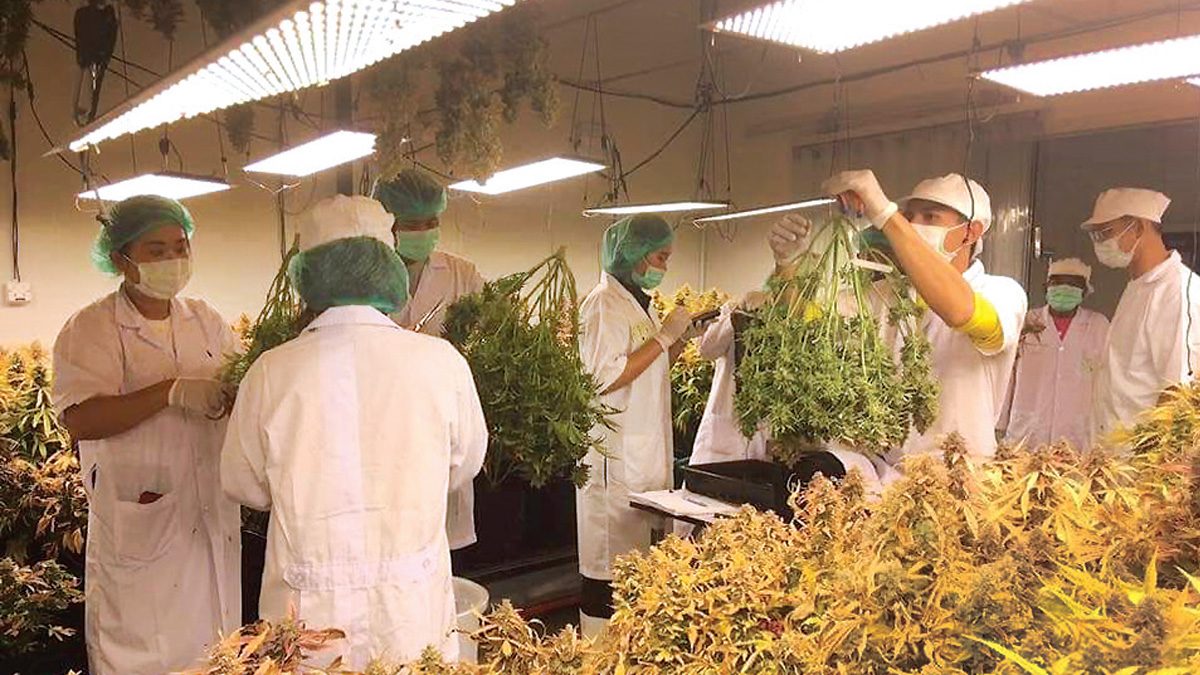
From Seeds into Products: ‘360° Cannabis & Hemp for the People’ exhibition
01/03/2021One of the many sectors being affected by COVID-19 crisis is “Education”. Despite having to face this difficult circumstance of the first wave of the COVID-19 pandemic, Rajamangala University of Technology Thanyaburi (RMUTT) still managed to support students and helped them continue to learn during the time of uncertainty. Unfortunately, with the second wave of Covid-19 in Thailand, most of the educational institutions needed to adjust their teaching and learning systems sustainably. Although many academic units have also started blended learning, still a lot of them needed to push the pace of change even faster in order to helping children cope with changes resulting from COVID-19. One of the universities which becomes very adaptive can facilitate a response to the current crisis is Rajamangala University of Technology Thanyaburi.
Assistant Professor. Dr. Sommai Pivsa-Art, President of Rajamangala University of Technology (RMUTT), revealed that, “Although COVID-19 is currently affecting educational institutions, it does makes people more adaptive. We believe that having already faced the first wave of COVID-19 at the time, the past experience would allow us to adapt ourselves to encounter the current crisis. During the first wave of Covid-19 epidemic, I had tried to help our staffs adjust to the situation and hopefully, those adjustments will provide appropriate precautions to help support our staffs and students now.”
Assistant Professor. Dr. Sommai Pivsa-Art added, “Due to the arrival of COVID-19, various supporting measures had also been prescribed by RMUTT to facilitate students including learning via the Internet. Fortunately, because of this measure, students are more dependable on themselves enabling them to acquire all the knowledge that they need from the program they enroll. In addition, RMUTT also highlights the development of academic programs that emphasize students’ and workers’ attainment of academic, lifelong, and technical skills in order to prepare them to fill high-demand, high-wage, as well as high-skill jobs, and of course, meet the needs of country’s sustainable development. Concerning the demands of essential skills in 21st century, RMUTT will be focusing on promoting and developing students’ foreign languages and their literacy including English, Chinese, and Japanese. Furthermore, with demand for professionals in this field is high and growing, RMUTT desires their students and lecturers to understand what they need in order to meet their needs, showing them what the current technology is, that is available to perform their required academic tasks, particularly online teaching and learning programs. These virtual curricula will need to be designed, fostered and developed for students with qualities. Correspondingly, soft skills, such as the critical thinking, problem-solving skills, leadership, collaboration and presentation skills are also crucial for students to succeed in life and work. Because RMUTT is a science and technology university, we are able to implement our fields of expert with other area of knowledge. For our students to succeed in their work career, hard skills are not enough. They also need to have soft-skills in order to achieve their career goals. In various industries, humans have already been replaced by robots meaning these robotic devices will be making steps on hard skills. They are capable of working days and nights ceaselessly and precisely far better than humans and of course, some other ways. Thus, new gen of students must obviously improve their soft-skills including their analytical skills, collaboration skills, knowledge-based management so as to succeed in their career”.
The arrival of COVID-19 has been proving to be one of the most important factors of education adaptation. Integration of different types of knowledge is far more important than just pure education. For aviation graduates, finding jobs are much harder than ever before and therefore, having a single type of knowledge is not enough. We need to integrate different employability curriculum that match the needs of labor market such as accounting, entrepreneurship, marketing, etc. In case they are unable to find jobs that are relevant to their major field of study, these subskills may be assisting them to find other kinds of job, eventually.
I will have to say that of those who graduated from university, almost all of them were either able to find jobs in many industries or own the business entirely by themselves. Personally, I set my personal goals to help all students even if they already graduate from the university. I always feel welcoming every time they come to seek for my help. To me life-long learning is just inevitable even for myself and students themselves. One other thing, we have been preparing and given responsibilities for managing ‘Digital Credit Bank System’ to promote life-long learning.
In case, some students do not wish to study in-class or do not have enough time to study onsite, Digital Credit Bank System would definitely help facilitate students to successfully regulate access to academic and career achievement. “At present, we realize that there has been a great demand of labor workforce who wish to develop their employability skills for a changing world. Moreover, there are a lot of school students who wish to apply their bachelors via credit bank system and right now, RMUTT offers 19 academic curricula.
Interestingly, we used to offer our lecturers to Thai Summit to help teach their employees onsite. Because of their study time limitation, we let them collect their credits through credit bank system. In addition, we also reward ‘A’ grade to those students who already have great language skills without taking any language courses. We actually believe they should spend more time on other skills that they are lack of. We hope that our students will be able to implement their academic skills and soft skills enabling them to work and collaborate with others well.” Asst. Dr. Sommai concluded, “I really believe that we need to help our students acquire knowledge and life skills, and of course, it’s our job to make sure that the love of self-learning is never impeded our students.
Concerning our ‘Learn How to Learn’ campaign, we have mutually been developing our academic system with Singapore and Finland. Last year, I was very surprised that my students told me that after graduating from the university (Bachelor Degree in Material and Metallurgical Engineering, Department of Plastic Engineering), they may have to sell 99 bath plastic buckets. I told them right away that Thailand has almost 6,000 factories in the country. Those who work in the field for to 4 to 5 years actually get at least 50,000 salary a month. Each year there are only 30 students graduating from the field. I will have to say again that all our students will definitely get their jobs. Hopefully three years from now, we expect to develop our students into innovators based on science and technological knowledge. We will become innovative university leading our students to develop into great innovators for Thailand. Our innovative curriculums will be based on 3 main focuses including:
1.Agriculture and Food
2.Logistics
3.Information Technology
2.Tourism and Health Science
We have now been integrating different fields of disciplines. Right now, you can’t just learn Food Science, you need to have more knowledge in other fields of study. For example, food engineering is a hybrid of food science and other science fields including Home Economics Technology, Science and Technology, Agricultural Science, Business Administration, etc. I will have to say that learning experiences with this curriculum could help improve learner management skills and some others. We would like all of our faculties to have this type of program at least one. This program will definitely help equip the university with diversified programs that could provoke student academic interests. If other programs are not that interesting enough, we will close the program. Additionally, lecturers of the program will need to improve themselves at all times.
Assistant Dr.Sommai Pivsa-Art ended his closing remarks saying, “ Most of RMUTT lecturers are very adaptive and of course, they are certainly growing from the root of Science and Technology. At present, numbers of students who are interested in enrolling the courses are certainly very high and for the last five consecutive years, the number of students has been increasing 100% each year. Concerning the higher numbers of students and quality of teaching, we are able to foster student learning quality and improve lecturer teaching quality at the same time.
